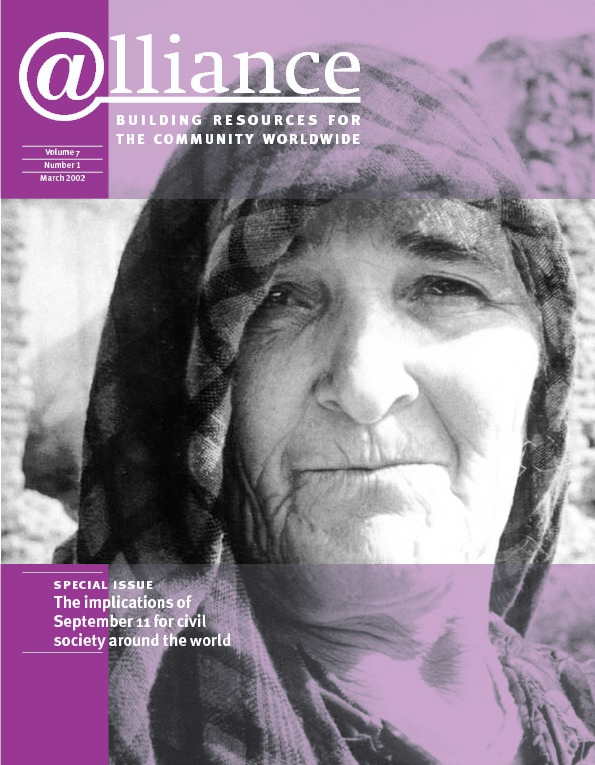What does civil society see as crucial for peace-building and reconstruction in Afghanistan? Formulating a clear message to the UN was the aim of a three-day UN-sponsored civil society meeting in Germany from 29 November to 2 December last year.[1] This meeting took place alongside the better-publicized political meeting on the future government of Afghanistan, also sponsored by the UN.
The civil society meeting brought together 80 participants from around the world, including NGOs, women’s organizations, academics, journalists, professionals, business people, and other important members of the Afghan Diaspora. Around half of those invited came from Pakistan, owing to the numbers of Afghan civil society organizations operating from Pakistan and its having the biggest population of Afghan refugees in the world (roughly 2.5 million). Other participants came from Afghanistan itself (a small number), other neighbouring countries, Europe, the US and Dubai, where many Afghans have businesses.
Discussions ranged widely, covering security, women’s participation, the transition to a legitimate government, education, human rights and constitution building, and reconstruction.
Meeting participants clearly saw a role for different sectors in the reconstruction of the country. Civil society should play a bridging role between the political leadership and the population. It can also act in a consultant capacity for institutions of the interim administration. A consultative committee to the government representing the Afghan private sector should also be established, and measures introduced to encourage the return of exiled Afghan experts.
Not surprisingly, women’s participation emerged as a crucial issue. A significant number of women should be included at all decision-making levels, with a quota system for women’s participation in the political arena (eg a percentage of seats for women in the Loya Jirga (Grand Assembly)) and a ministry of women’s affairs in the new government. Education for women should be promoted on a massive scale. Both women’s and children’s rights should be embodied in the constitution.
Those drafting the new constitution – seen as the first duty of the Loya Jirga once it has been convened by the interim administration – will clearly face a difficult balancing act. The future constitution of Afghanistan will have to be based on Islamic laws and Afghan culture and traditions, but it will also need to conform to modern standards. It must respect the UN Charter, and generally help in building a modern society. In that spirit, it should especially guarantee social justice and further democratization. A Parliament with members elected through a free and secret ballot should be established as the supreme legislative body of the state.
1 The meeting was organized, at the UN’s request, by the Swiss Peace Foundation with the cooperation of the German Institute for International and Security Affairs (Stiftung Wissenschaft Politik).
Seema Ghani is Managing Director of Khorasan, a UK-based charity supporting Afghans in need in Afghanistan and Pakistan. She can be contacted at seema@khorasan.org
For further information about the meeting and follow-up, contact Susanne Schmeidl, Coordinator, Afghan Civil Society Forum, at the Swiss Peace Foundation.
Tel +41 31 330 1212
Fax +41 31 330 1213
Email schmeidl@swisspeace.unibe.ch
Website http://www.swisspeace.ch




Comments (0)